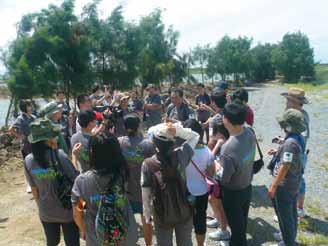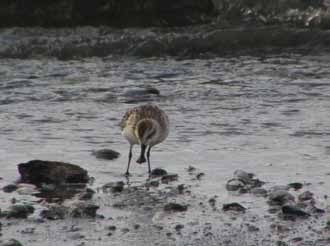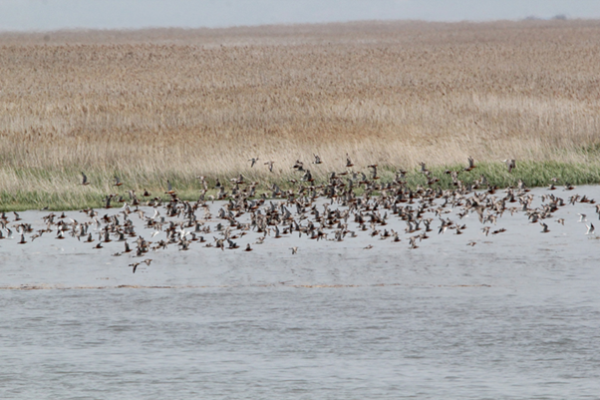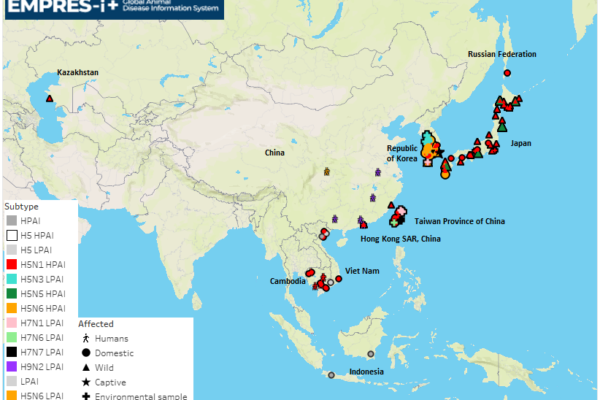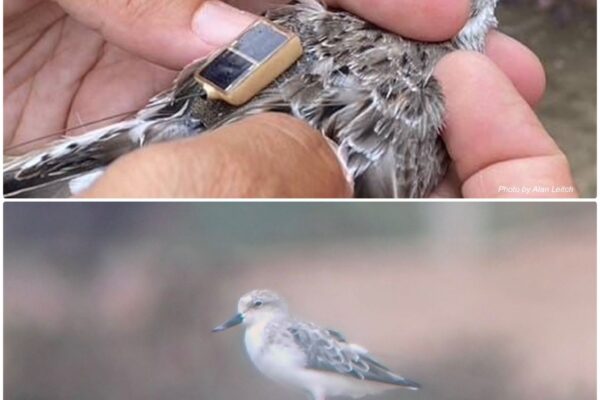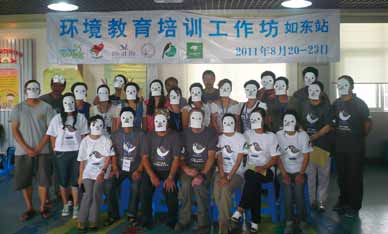
Participants of the education training workshop in Xiao Yan Kou, Rudong in Jiangsu Province wearing masks of Spoon-billed Sandpiper. © Vivian Fu
Earlier this year, BirdLife’s China Programme (a joint initiative of Hong Kong Bird Watching Society and the BirdLife Asia Division) started to work with Wild Bird Society of Shanghai and Fujian Bird Watching Society on a project ‘Saving Spoony’s Chinese Wetlands’ which is funded by Disney’s Friends for Change. Education activities to raise awareness of conserving the wetlands and SBS formed a large part of this project. Therefore, two training workshops on interpretation and ducation were organised between 20th and 28th August, 2011, to equip volunteers and teachers who will help promoting inter-tidal wetland conservation in Rudong and Minjiang Estuary.
The tainers of the workshop were Barrie Cooper from the Royal Society for the Protection of Birds (RSPB), Simba Chan from BirdLife International Asia Division, Fion Cheung and Yamme Leung from WWF Hong Kong. Fifty-six volunteers from birdwatching societies and universities as well as teachers from Shanghai, Jiangsu, Fujian and Zhejiang attended the four day workshop in Rudong. In Fuzhou, 35 teachers and volunteers of Fujian Bird Watching Society participated in the two day workshop. They were trained on interpretation, education, event organising and communication skills relating to SBS and wetland conservation work. To read on, please find page 10 from the following link.

